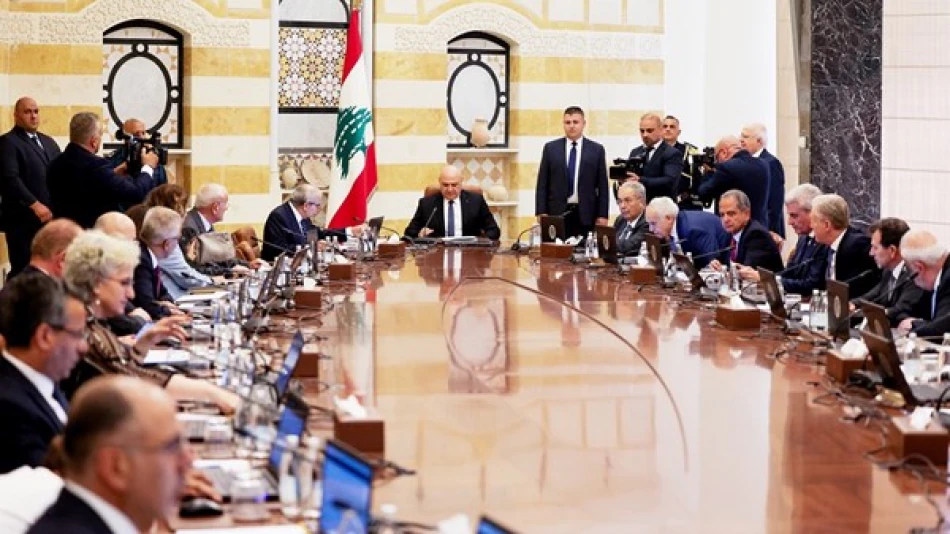
Lebanese Cabinet Discusses Asserting State Sovereignty Across its Territory
Lebanon Moves to Assert Full State Control as Government Tackles Sovereignty and Financial Reforms
Lebanon's new government under Prime Minister Nawaf Salam is taking decisive steps to establish complete state sovereignty over all territories using only national forces, while simultaneously advancing critical financial transparency reforms that could reshape the country's economic landscape. The Cabinet's Tuesday session at the Presidential Palace signals a coordinated push to rebuild institutional control after years of fragmented authority.
Sovereignty First: Military Deployment and Weapons Monopoly
The Lebanese Cabinet, meeting under President Joseph Aoun's leadership, prioritized extending state control across all national territory through domestic military forces alone. This represents a significant shift from previous arrangements that relied on international peacekeeping presence or tolerated armed non-state actors.
The Lebanese Army has already deployed across most southern towns and villages, marking the most comprehensive state presence in border regions in years. President Aoun's inaugural pledge to ensure the state's monopoly on weapons carrying appears to be translating into concrete military action, potentially challenging the longstanding presence of Hezbollah and other armed groups.
Strategic Timing After November Ceasefire
The government's sovereignty push builds directly on arrangements following the cessation of hostilities in November 2024, likely referring to the recent Israel-Hezbollah conflict resolution. This timing suggests Lebanon is capitalizing on a window of reduced tensions to reassert central authority in previously contested areas.
Financial Transparency Revolution in the Making
Beyond military matters, the Cabinet addressed amendments to cross-border money transfer declaration laws and anti-money laundering legislation—moves that could fundamentally alter Lebanon's financial sector dynamics.
These reforms come as Lebanon struggles with one of the world's worst economic crises and faces international pressure to combat financial crimes. The timing suggests the new government recognizes that economic recovery requires restoring international banking confidence through enhanced transparency measures.
Learning from Regional Financial Hubs
Lebanon's focus on anti-money laundering reforms mirrors successful transformations in the UAE and Singapore, where enhanced financial transparency helped attract legitimate international investment while maintaining banking sector competitiveness. For Lebanon, such reforms could be essential for eventual IMF deal completion and international aid access.
Infrastructure Modernization Through Satellite Internet
The Cabinet's discussion of satellite internet services reflects recognition that economic recovery requires modern digital infrastructure. This initiative could bypass Lebanon's notoriously unreliable traditional telecommunications network, potentially enabling remote work opportunities and digital economy development.
Satellite internet deployment has proven transformative in conflict-affected regions worldwide, offering Lebanon a chance to leapfrog infrastructure constraints that have hindered business development and international connectivity.
Market and Investor Implications
For international investors and Lebanese diaspora considering re-engagement, these developments signal potential institutional strengthening after years of state weakness. Enhanced financial transparency could eventually facilitate legitimate banking relationships, while restored sovereignty might reduce political risk premiums.
However, implementation remains crucial. Lebanon's history of ambitious reform announcements followed by limited execution means investors will likely await concrete evidence of sustained policy implementation before adjusting risk assessments significantly.
The coordination between President Aoun and Prime Minister Salam, evidenced by their pre-Cabinet meeting, suggests stronger executive alignment than Lebanon has experienced recently—a prerequisite for successful reform implementation in the country's complex political system.
Most Viewed News

 Layla Al Mansoori
Layla Al Mansoori






